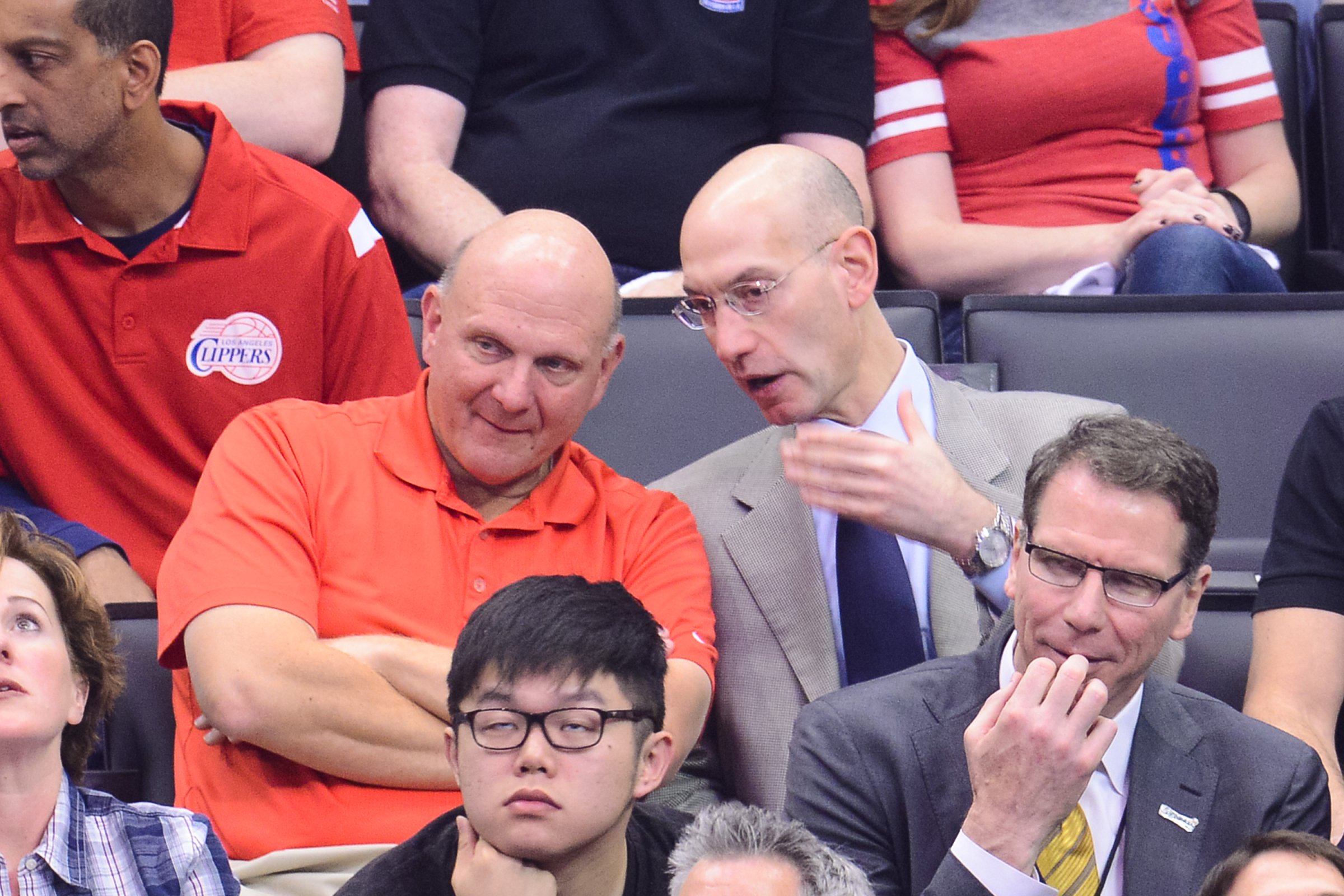
A billion here, a billion there, pretty soon you’re talking about real money. But Steve Ballmer doesn’t seem to treat $2 billion as real money.
Forbes magazine estimates that last year the Los Angeles Clippers generated $128 million in revenue and earned $15 million in profits. At a 5% rate of return, the Clippers would be valued at $300 million. But NBA teams are scarce commodities and their value goes up over time. Moreover, owners garner handsome indirect and non-pecuniary returns, so sports teams commonly sell at a multiple of their previous year’s revenues. The typical multiple in the NBA is 4. That would put the Clippers’ value at $512 million.
But the Clippers will be signing a new TV contract in a few years, and the team is playing better and is more popular than ever. One can anticipate that their revenues will experience robust growth going forward. What if revenues grew by $52 million, to $180 million? Using the revenue multiple of 4, that would put the team value at $720 million.
The only way to get an economic value of $2 billion would be to have projected revenues rise to $500 million. How could that happen? Well, the Lakers got a long-term TV deal with Time Warner for $200 million a year, and the Dodgers have a new one at $340 million annually for 25 years. If the Clippers could get a Lakers- or Dodgers-type contract, then the team’s revenue might begin to approach $500 million.
Perhaps this is what Ballmer and his financial advisers were thinking. They should think again. Time Warner is losing its shirt on the Dodgers deal. It projected it would be able to sell the Dodgers’ RSN (regional sports network) to all greater Los Angeles households for $5 per month. So far, only 30% of area households receive the Dodgers games — those are the households served by Time Warner cable. No other cable or satellite distributor is willing to pay the price that the Dodgers’ RSN demands. In fact, the price has recently been lowered to $4 and there are still no takers.
It would be unreasonable in the extreme that Time Warner, or its competitor Fox, would be willing to sign a Dodgers-type deal. Even if the Dodgers deal were working out, baseball has twice the number of games as basketball and historically has garnered much larger television contracts than basketball. And the Dodgers are the Dodgers — the second strongest brand in baseball after the Yankees.
Recall, too, that the Dodgers own their own facility. The Clippers are tenants.
Topping things off, Ballmer was sent a financial package by the Sterlings just a couple of days ago. In normal deals, that’s just the first step. After that, there are questions, details, more contracts to view, people to interview (including companies like Time Warner) and so on. Sterling insisted on final bids within a couple of days — preventing proper due diligence on the franchise, perhaps knowing that the more time he gave the bidders, the more they would learn and the more issues they would find.
So what’s going on? Ballmer is making a vanity purchase — he’s buying a toy. His net worth is reportedly valued at close to $15 billion. He could still survive if his net worth were $13 billion. He’s a basketball nut. He wants to have some fun. He wants to sit next to Jack Nicholson.
Andrew Zimbalist is Robert A. Woods Professor of Economics at Smith College. His latest book is The Sabermetric Revolution: Assessing the Growth of Analytics in Baseball.
More Must-Reads from TIME
- Donald Trump Is TIME's 2024 Person of the Year
- Why We Chose Trump as Person of the Year
- Is Intermittent Fasting Good or Bad for You?
- The 100 Must-Read Books of 2024
- The 20 Best Christmas TV Episodes
- Column: If Optimism Feels Ridiculous Now, Try Hope
- The Future of Climate Action Is Trade Policy
- Merle Bombardieri Is Helping People Make the Baby Decision
Contact us at letters@time.com